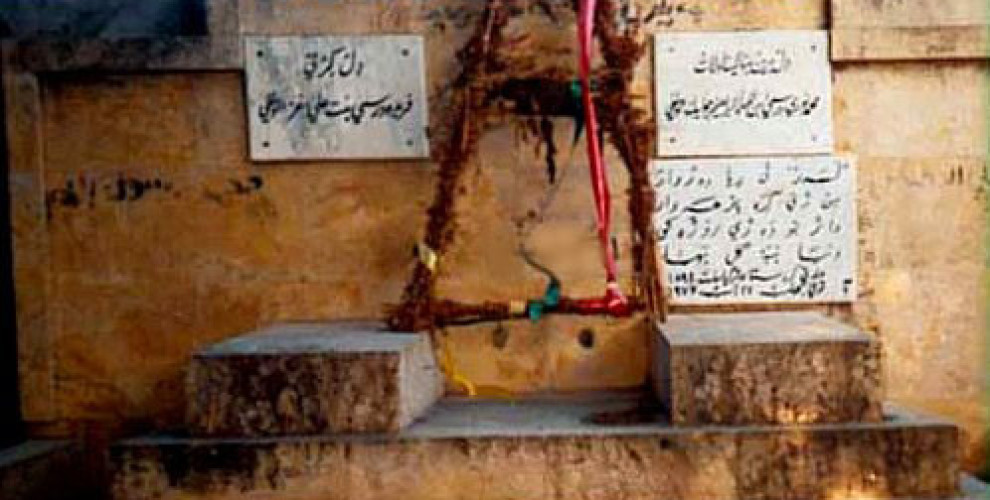Turkish army destroys another historic site in Afrin
The Henan mosque was plundered and Kurdish writer Dêrsimî’s grave destroyed.
The Henan mosque was plundered and Kurdish writer Dêrsimî’s grave destroyed.

Images were published in the social media of Henan Mosque place of pilgrimage in the village of Kafr Jana linked to Sera (Afrin) that was plundered by the Turkish army.
The images show that many of the objects contained in the mosque have been stolen while others have been scattered around.
The Turkish army also destroyed the grave of the legendary well-known Kurdish writer and thinker Nuri Dêrsimî, which was housed in the pilgrimage place.
The people who record the video said that the gangs have stolen everything and that nothing has been left in Henan's Hall.
Henan pilgrimage place is one of the most important historical sites in Afrin.
According to sources in the region, the grave of Kurdish writer and thinker Nuri Dêrsimî was also destroyed by the Turkish army.
Nouri Dêrsimî supported many Kurdish uprisings against the Turkish state and played an important role in organizing the rebellions.
Turkish State wants to destroy Kurdish cultural heritage
The violations of the Turkish army and its mercenary gangs did not only target innocent civilians and their properties in Afrin but also the historical and cultural sites. The aim is to eliminate the cultural heritage of Afrin as well as its peoples.
The targeting and destruction of historical and cultural sites is strictly prohibited by a series of international conventions.
The bombing of archaeological sites and mosques in Afrin is part of the systematic and direct attack by the Turkish army, which can be considered as acts of terrorism according to the rules of international law and UN Security Council resolutions, denounced the Afrin Autonomous Authority on various occasions.
The Turkish army destroyed large parts of Ain Dara temple, which dates back thousands of years (12,000 years according to some experts). In addition, the Turkish army targeted Salah Al Din Mosque and the cemetery of Jindires.